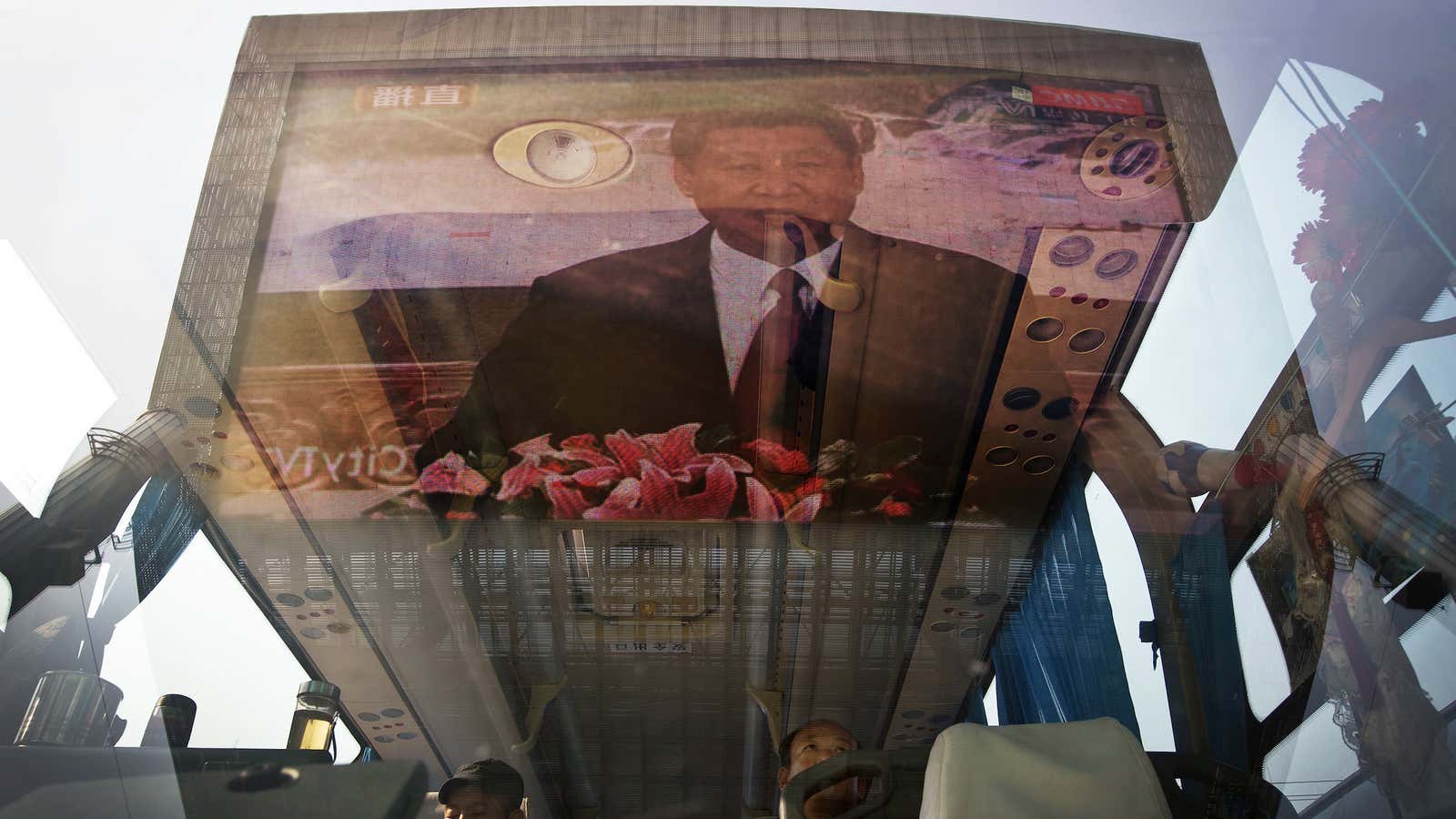Forget the speculation about why US national security advisor Tom Donilon is jumping ship just as his boss, Barack Obama, meets for the first time with China’s new president. It is obscuring a far more important dynamic that is emerging in advance of tomorrow’s China-US summit in California, held at the casual Sunnylands resort.
Xi Jinping isn’t coming to California to reach any significant agreement with Obama on cybersecurity, the US pivot to Asia or other thorny issues. He has a much more intangible agenda, veteran China watchers tell Quartz. They say he’ll try to recast the relationship between the two countries as one of equal superpowers, casting himself as the heroic and forceful champion of the “Chinese Dream” of national revival and prosperity.
“He could care less about establishing a good personal relationship with Obama,” says Jonathan Adelman, a former China advisor to the State Department and Pentagon and former honorary professor at People’s University in Beijing. “He’s looking for atmospherics, to show the folks back home that he’s fighting for China.”
Xi has been aggressively making that case since assuming the presidency in March, with trips to Russia, Africa and elsewhere. But the one-on-one with Obama is his big chance to establish a reputation among the party faithful as China’s would-be savior, and to do so at the outset of what’s expected to be a decade or so of leadership. Turning public attention away from embarrassing domestic issues like massive pollution and governmental corruption couldn’t hurt either.
Since most of the really important meetings will take behind closed doors, China watchers will be focused on reading clues from the photo ops and other public stagecraft. Xi is the son of a revolutionary hero and Communist Party propaganda chief, and is very adept at using the power of symbolism. Here’s what to watch for:
The seating chart
Xi has already suggested in public statements that he will be forceful during the two days of informal and unscripted discussions. And he has announced to the Chinese [state-run] media that he’ll sit across the table from Obama—not side by side, as every Chinese leader since Mao has done when meeting an American president. “He’s implying that that was the old fashioned way, and now we’re big time,” Adelman says. “The Chinese press was aglow.”
The aide-de-camp
Xi has consolidated power extremely quickly and adroitly, in part by showing that he is a leader who marshals China’s great brainpower before making his own decisions. Nothing telegraphs that image better than having at his side Wang Huning, a senior advisor to three Chinese presidents and a specialist on US politics. Xi has brought Wang on virtually all of his overseas trips, and is expected to showcase their relationship—especially since it highlights how Obama’s own top security advisor, Donilon, is a lame duck.
Alpha-male body language
Xi will also go to great lengths to portray himself not only as a vibrant and strong advocate for China, but as Obama’s equal. The Chinese study this sort of thing, and are keenly aware of the bad press Obama got for apparently bowing to Saudi King Abdullah in 2009. Watch for Xi to take every opportunity he can to show himself in a dominant position while sitting, walking, even standing. He’ll also make sure the Chinese media show him enjoying a laugh or two with his fellow world leader. “In terms of orchestrating these photo ops, the Chinese central media does that very well,’’ predicts Christopher K. Johnson, a former senior China analyst at the CIA who is now at the Center for Strategic and International Studies in Washington.
